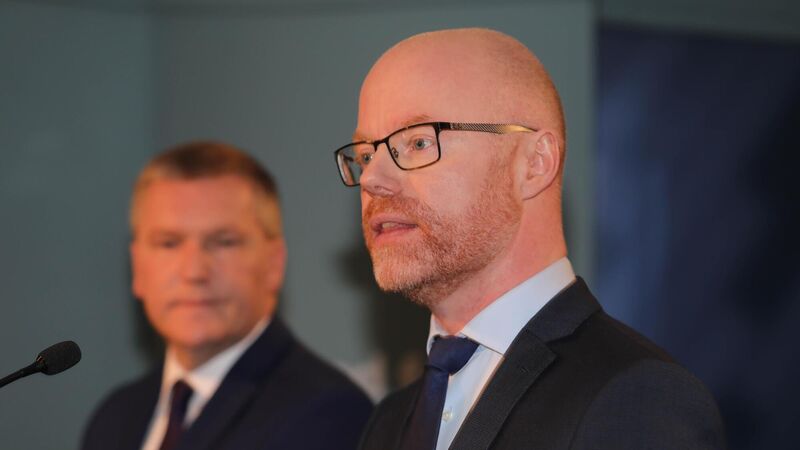Ciara Phelan: Tough budget negotiations could spell trouble for Stephen Donnelly

Public Expenditure Minister Michael McGrath, left, played down reputed tensions between him and Health Minister Stephen Donnelly ahead of Budget 2023. Picture: Garrett White/Collins
Tough budget negotiations are expected to take place in the coming days but soundings suggest Health Minister Stephen Donnelly may suffer a spending blow.
Public Expenditure Minister Michael McGrath has admitted health spending generally is an issue, which his and Mr Donnelly’s officials are working through at the moment.













